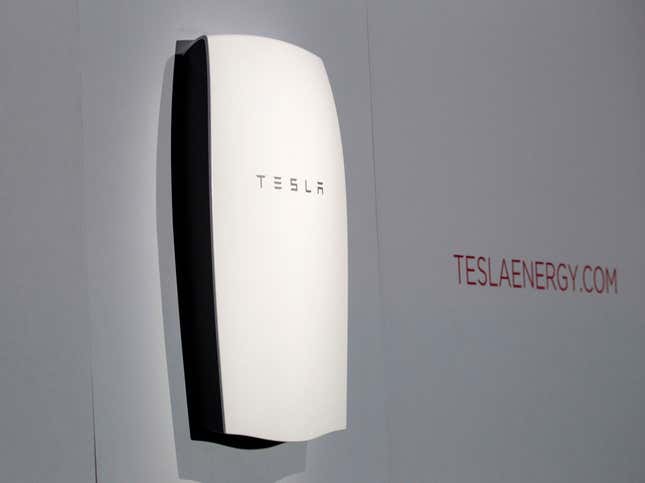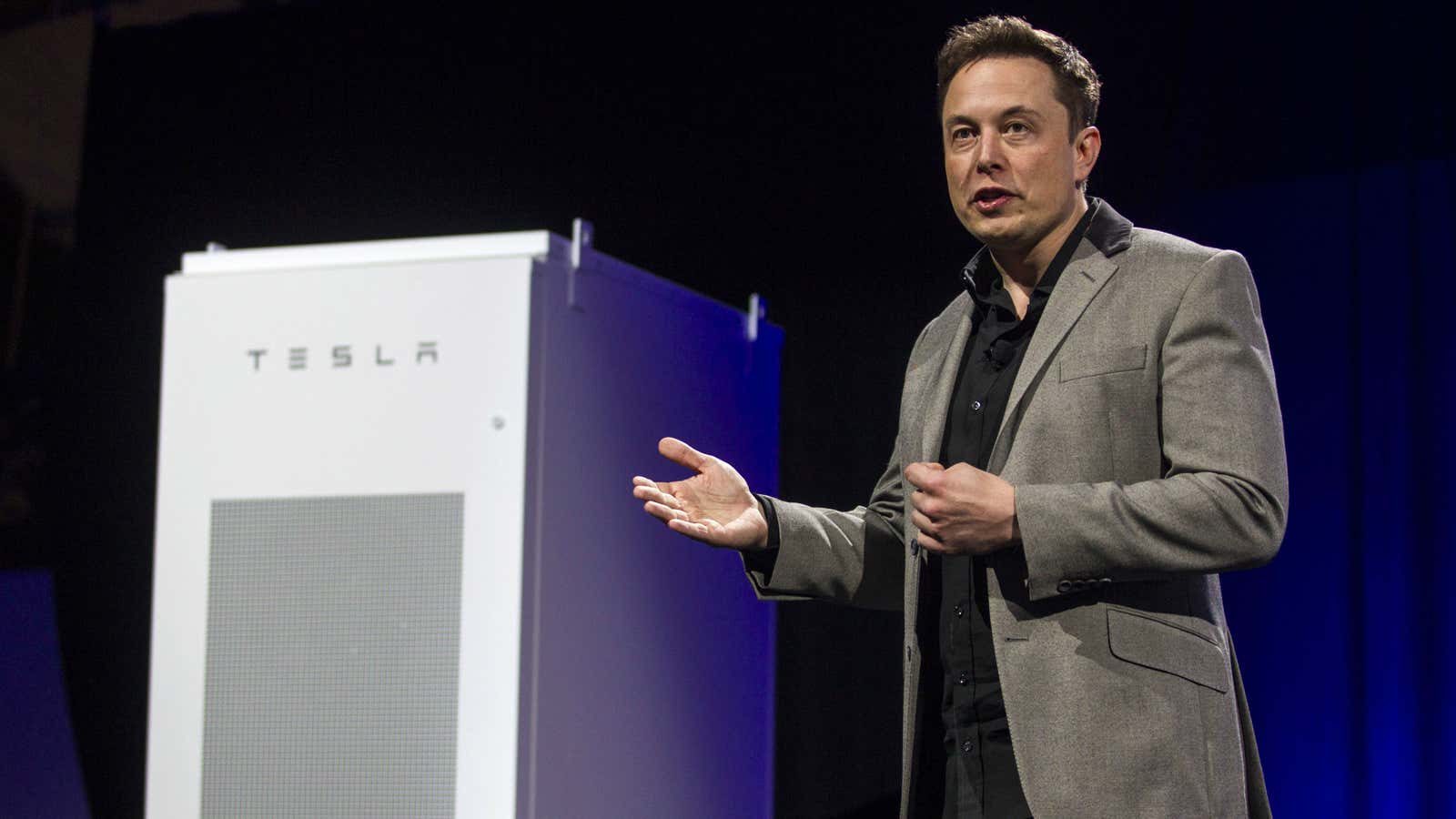Tesla has started selling batteries that don’t have an expensive car attached. And CEO Elon Musk—the billionaire entrepreneur often compared to a superhero or a Bond villain—described a scenario in which they could potentially power much of the world.
Tesla’s new offering is called the Powerwall, a rechargeable lithium-ion battery that is designed to be mounted in a garage or on the side of a house. The device, the size of a small refrigerator, will be available in three to four months, at a price starting at $3,000 for 7 kilowatt hours (kWh). The Powerwall can store power from a home’s solar panels, or connect to the electrical grid, storing up electricity when rates are low and providing backup electricity supply in case of a blackout.

The sun is “this handy fusion reactor in the sky—you don’t have to do anything, it just works,” Musk said in a presentation. “The obvious problem with solar power is the sun does not shine at night.” (Musk, in addition to running Tesla and a rocket company, is also the chairman of Solar City, a solar panel installation business.)
Tesla is also taking aim at a bigger customers, selling 100 kWh batteries called Powerpacks to utilities and electricity-hungry companies like Amazon. Musk said Tesla is capable of “infinitely scaling” the units into a gigawatt hour-class installation, which could power a mid-sized town of about 100,000 people, or even build larger configurations.
The company’s consumer- and business-focused batteries will eventually be manufactured at the massive Gigafactory that Tesla is building in Nevada, where Tesla car batteries will also be made.
The truly grandiose scale of Musk’s ambition was revealed at the end of his presentation, when he described how many gigawatt hour class Powerpacks it would take to fulfill all of the world’s transport, electricity, and heating needs: about 2 billion.
“I’m very tempted to do the billion thing,” joked Musk, who has often poked fun at his Dr. Evil-esque public image. “Let me restrain my hand.” (see the GIF, left.)
But Musk wasn’t joking when he said this: “Our goal here is to change the way the world uses energy at an extreme scale … This is something within the power of humanity to do. We have done these things before.”
Many are dubious that Tesla’s ambitions are achievable. As Quartz has reported, many of the company’s recent announcements seem to be designed to drive up its volatile stock, and Tesla’s path to profitability—it is currently targeting 2020—is a bumpy one if it cannot raise more capital from investors.
But grandiose ambitions have always been part of the Tesla pitch, and there is the chance that Musk’s bets could pay off.
“The goal is to change the world, starting with the automotive industry and closely followed by the power sector and then energy in general,” Bernstein analysts wrote shortly before the new battery business was announced. “Is that a realistic goal? Clearly it is not. But it is useful to remember that Elon Musk’s other business involves flying to Mars.”




